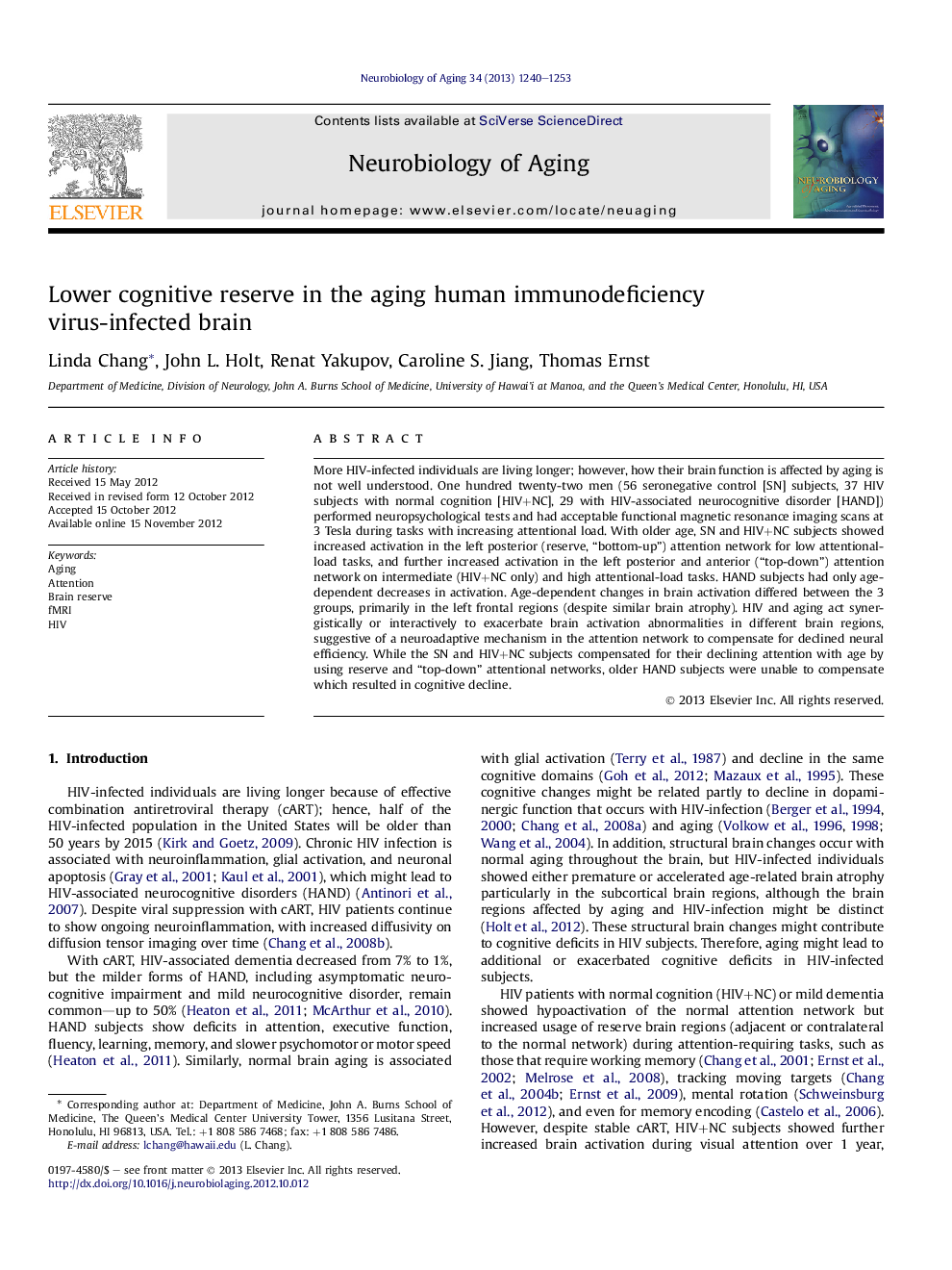| Article ID | Journal | Published Year | Pages | File Type |
|---|---|---|---|---|
| 6807717 | Neurobiology of Aging | 2013 | 14 Pages |
Abstract
More HIV-infected individuals are living longer; however, how their brain function is affected by aging is not well understood. One hundred twenty-two men (56 seronegative control [SN] subjects, 37 HIV subjects with normal cognition [HIV+NC], 29 with HIV-associated neurocognitive disorder [HAND]) performed neuropsychological tests and had acceptable functional magnetic resonance imaging scans at 3 Tesla during tasks with increasing attentional load. With older age, SN and HIV+NC subjects showed increased activation in the left posterior (reserve, “bottom-up”) attention network for low attentional-load tasks, and further increased activation in the left posterior and anterior (“top-down”) attention network on intermediate (HIV+NC only) and high attentional-load tasks. HAND subjects had only age-dependent decreases in activation. Age-dependent changes in brain activation differed between the 3 groups, primarily in the left frontal regions (despite similar brain atrophy). HIV and aging act synergistically or interactively to exacerbate brain activation abnormalities in different brain regions, suggestive of a neuroadaptive mechanism in the attention network to compensate for declined neural efficiency. While the SN and HIV+NC subjects compensated for their declining attention with age by using reserve and “top-down” attentional networks, older HAND subjects were unable to compensate which resulted in cognitive decline.
Keywords
Related Topics
Life Sciences
Biochemistry, Genetics and Molecular Biology
Ageing
Authors
Linda Chang, John L. Holt, Renat Yakupov, Caroline S. Jiang, Thomas Ernst,
